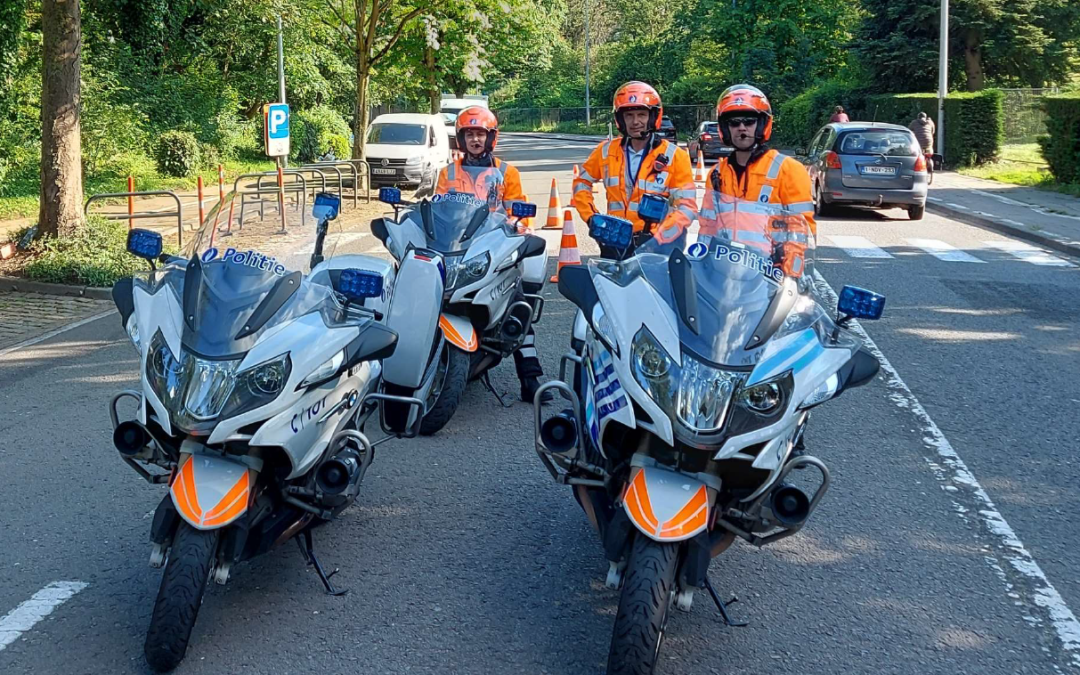Some 170 mopeds, motorcycles and other L-vehicles were tested last week during noise and air pollution tests at two locations in the Belgian city of Leuven – an astonishing success made possible by the good cooperation with the Leuven police. A good working relationship has been established over the last 12 months since the initial engagement between the LENS consortium, the City of Leuven, KU Leuven and the local police. This support was crucial to the success of the project, from obtaining a test provision, to selecting the test site, to conducting the test itself.
City support was the starting point
The project’s dissemination partner, POLIS, and its member, Leuven, facilitated the city’s support from day one. Tim Asperges, Mobility Advisor of Leuven, highlighted this support during the LENS stakeholder event, emphasising the importance of tackling noise and air pollution throughout the city. In addition to its involvement in the LENS project, Leuven has implemented various measures to reduce through traffic, promote shared mobility and introduce a 30 km/h speed limit in the city centre. The city council of Leuven has mandated the local police to support the LENS measurement campaigns, underlining its commitment to the project.
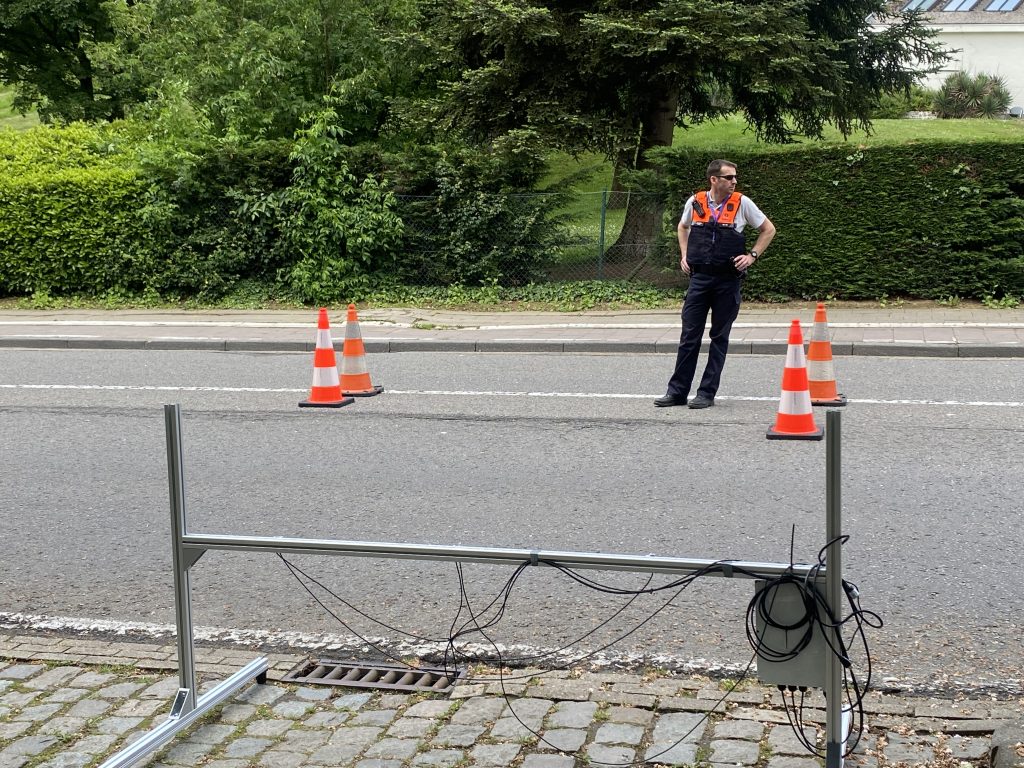
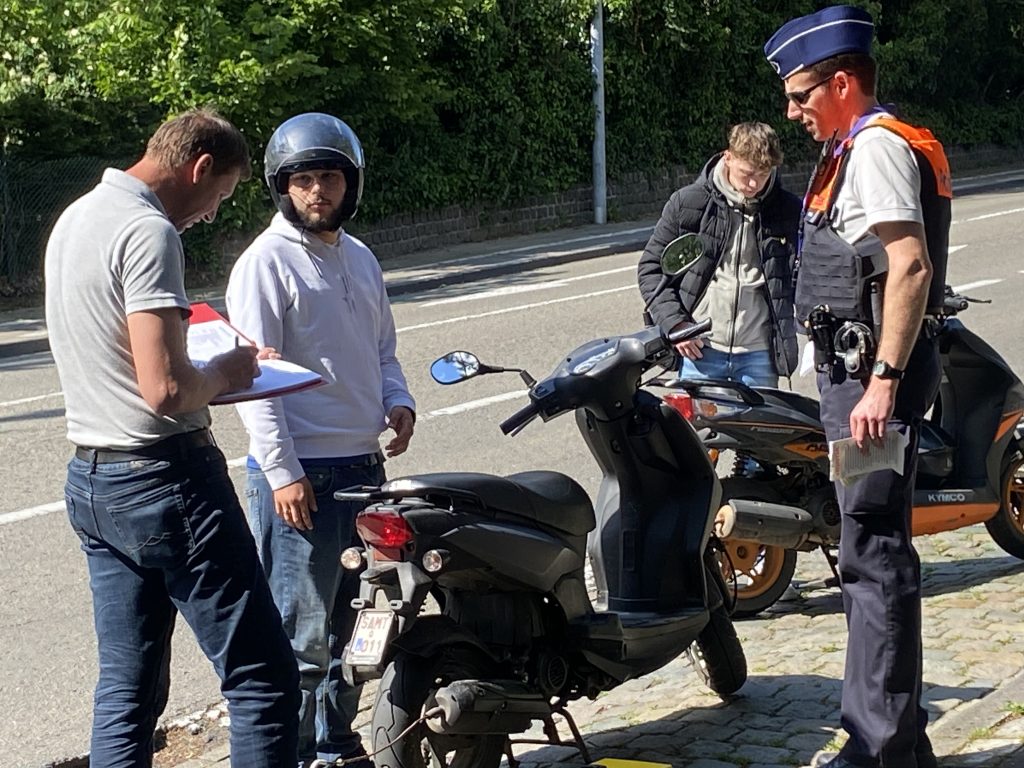
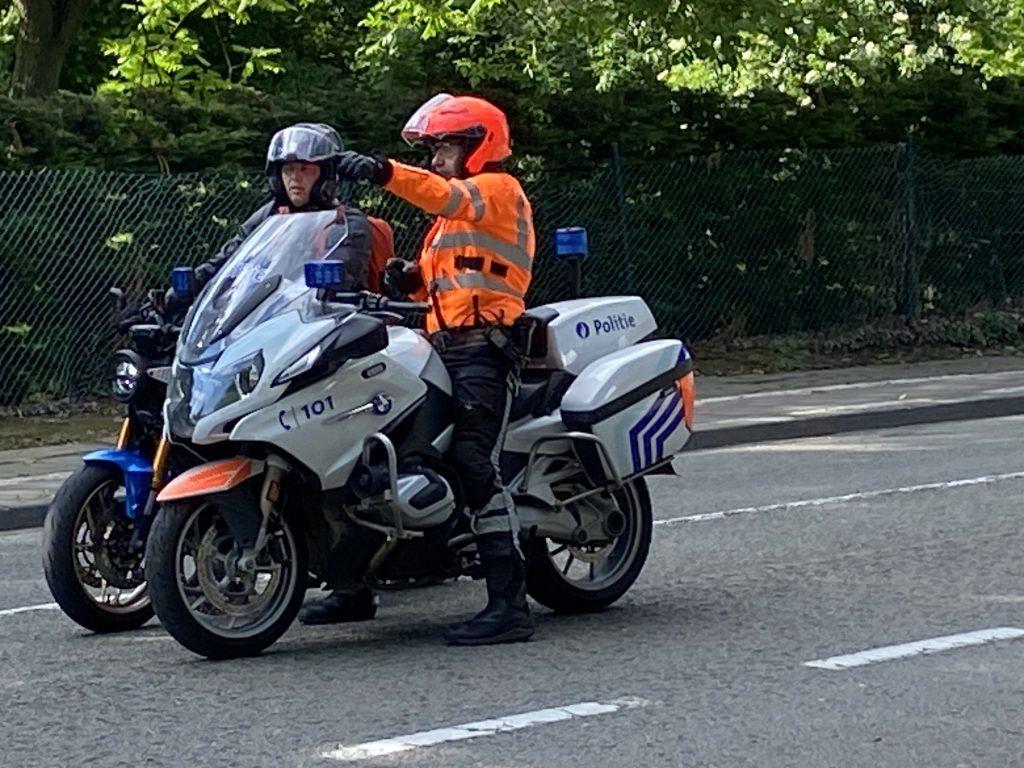
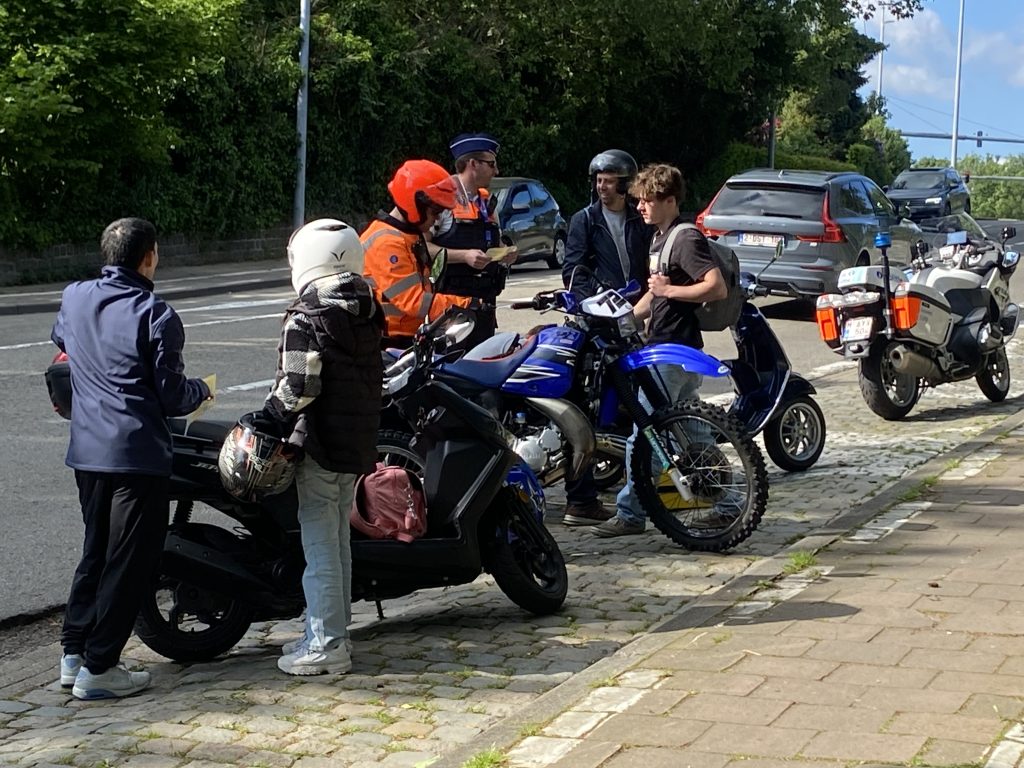
Local Police Benefit from Participation
All statements from the project coordinators and technical experts who conducted the test campaigns emphasised their gratitude to the local police forces who have been instrumental in supporting the LENS L-v
ehicle tests since the beginning of the project. Throughout the preparation of the test campaign, the selection of test sites and the week-long test in May, the police provided dedicated support.
This included blocking off the kerb for the installation of the test equipment, escorting the LV drivers through the test area and checking the roadworthiness and documents of the LVs, as well as detecting illegal tampering on all LVs that passed through the pollution control equipment.
Fortunately, the response from motorcyclists was very positive. The riders showed great interest in the research and the test setup and wanted to know if their vehicles were OK,” said Mathieu Caudron, Chief Inspector of the Leuven Police.
LENS also highlighted the importance of noise and air pollution from L-vehicles to the police authorities, as Caudron pointed out: ‘The current checks on bicycles did not include noise and air pollution tests due to various restrictions. This has given the police a better understanding of L-vehicles and their impact on the city as a whole’.
Ongoing Collaboration
Although the tests around the Belgian city were successful, Caudron and his colleagues will continue to monitor the other measurements in the autumn, and are certainly looking forward to the laboratory analyses of the L-vehicle tests in Leuven, which are currently being carried out by KU Leuven and TU Graz. LENS has also invited the police to its next test and event in Paris, which will take place on 17 and 18 September at the IFPEN premises (more information will follow soon).

